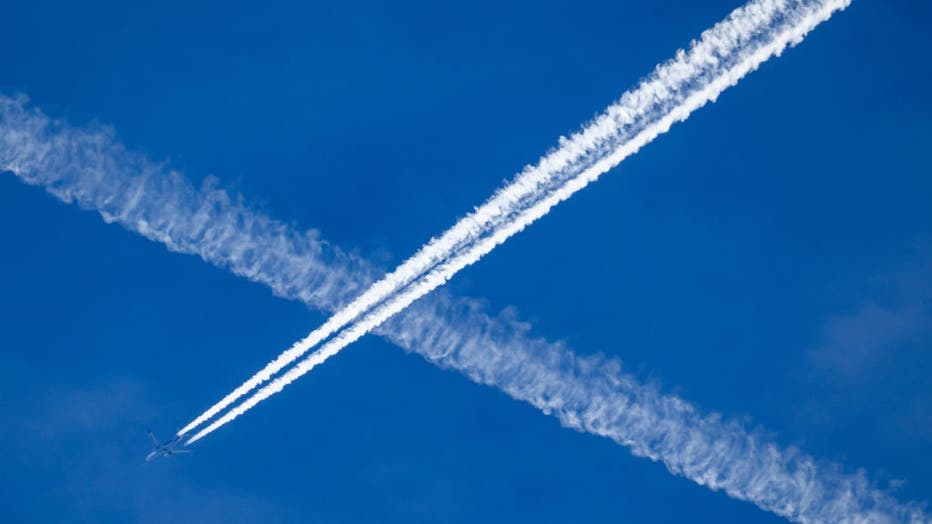This bill bans chemtrails, but do they even exist?
In April, the Tennessee Legislature passed a bill aimed at preventing geoengineering practices, reflecting a growing mix of concern and conspiracy among lawmakers and the public.
While the legislation focuses on climate modification techniques, it also rekindles debates surrounding the chemtrails conspiracy theory, which asserts that airplane trails are actually chemical agents being deliberately dispersed.
Are chemtrails real?
The chemtrails conspiracy theory posits that the visible trails left by airplanes, known as contrails, are actually chemicals intentionally sprayed into the atmosphere for various nefarious purposes, such as weather control or population manipulation.
Despite these widespread beliefs, scientific research consistently shows that these trails are simply condensation formed from jet exhaust at high altitudes.
Where does the conspiracy theory come from?
The chemtrails theory originated in the 1990s and has persisted over the years, gaining traction through the internet and social media.
The theory often cites historical government projects like Project Stormfury in the 1960s, which aimed to alter weather patterns, as "proof" of ongoing secret programs. However, these past efforts were limited in scope and intent, and there is no evidence linking them to the alleged chemtrails.
A recent episode of TMZ delved into this topic, where UFO investigator Ben Hansen noted," You know, this isn't born out of pure conspiracy. If you go back in time, the government has always been interested in weather manipulation."
"In 1962, the U.S. government launched Project Storm Fury, which aimed to hack hurricanes by seeding them with a chemical that would remove their moisture," the folks at TMZ explained.

An airplane leaves contrails in the blue sky. (Photo by Robert Michael/picture alliance via Getty Images)
Project Stormfury was a U.S. government initiative launched in 1962 with the goal of weakening hurricanes through cloud seeding. The project involved injecting silver iodide into the eyewalls of hurricanes in an attempt to disrupt their structure and reduce their intensity.
The theory was that seeding would stimulate the formation of new eyewalls, which could potentially shrink the storm's power. Despite several trials, the results were inconclusive, and the project was eventually abandoned in 1983. Stormfury remains a key reference in discussions about weather modification and geoengineering.
Is there any truth to it?
While the idea of chemtrails has been widely debunked, some aspects of geoengineering research do involve studying ways to deliberately modify the environment, such as solar radiation management.
An Associated Press article from 2022 addressed claims circulating on social media that "chemtrails" were admitted to be real by a CNBC report. The Associated Press clarified that the report discussed research into stratospheric aerosol injection as a potential climate solution, which is not currently in practice and does not relate to the chemtrails theory.
Experts, including those from Harvard University and Indiana University, have previously confirmed that aerosol injection technologies are theoretical and not in use. They also emphasized that if such large-scale projects were underway, they would be highly visible and subject to public scrutiny.
David Keith, a Harvard University professor specializing in solar geoengineering, clarified to the AP in 2022, that discussions about aerosol injection technology are about possibilities rather than current practices.
He explained that "a technology that is possible but is not now used" refers to the concept of stratospheric aerosol injections. Keith noted that if such injections were implemented, they wouldn't produce contrails like those seen from planes.
Instead, they would likely make the sky "a little whiter and hazier," similar to the appearance of a polluted city sky.

